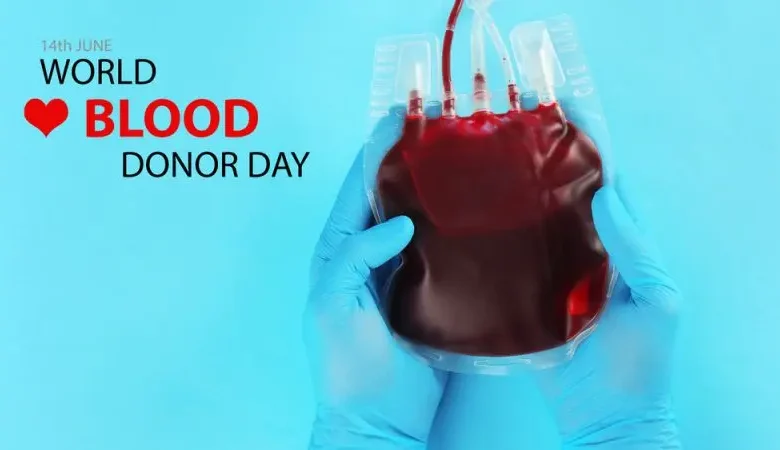On World Blood Donor Day, who can give blood?

World Blood Donor Day is observed annually on June 14th to raise awareness about the importance of voluntary blood donation and to express gratitude to blood donors worldwide.
Blood donation plays a vital role in saving lives and improving health outcomes for those in need.
However, there may be questions regarding who is eligible to donate blood.
Donors must typically be at least 17 to 18 years old, although some countries may have a minimum age requirement of 16 with parental consent.
There may also be an upper age limit, usually around 65 to 70 years old.

Donors must meet certain weight requirements, generally ranging from 110 to 50 kg (110 to 110 lbs), to ensure their well-being during and after donation.
Donors should also be in good overall health, free from any acute illnesses or chronic conditions that may pose risks to them or the recipients.
Hemoglobin, a protein in red blood cells that carries oxygen, is measured to determine if a donor has enough iron and is not anemic.
Minimum hemoglobin levels are set to ensure the safety the donor.

Donors are usually required to provide detailed information about their medical history, including any past illnesses, surgeries, or medications.
Certain health conditions or recent treatments may disqualify a person from donating blood. Additionally, some lifestyle factors, such as recent travel to certain regions, high-risk behaviors, or substance abuse, may temporarily or permanently defer individuals from donating blood.
Donors are screened for infectious diseases to prevent the transmission of infections through donated blood.
Blood banks conduct tests for diseases such as HIV, hepatitis B and C, syphilis, and other communicable diseases. Positive test results may lead to deferral from blood donation.
What is the story behind choosing June 14th as the World Blood Donor Day?
The choice of this day to celebrate World Blood Donor Day is attributed to the birth date of the Austrian biologist and physician, Karl Landsteiner. He was awarded the Nobel Prize in Physiology or Medicine in 1930.
Landsteiner is known as the founder of the ABO blood group system, for which he received the Nobel Prize.
This detection paved the way for safe blood transfusions by ensuring compatibility between donors and recipients.
He developed a modern system for classifying blood types based on identifying the agglutination factors present in the blood.











